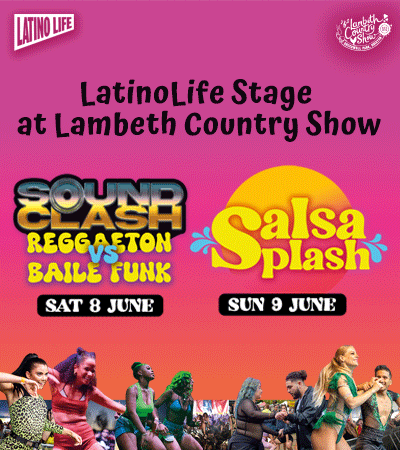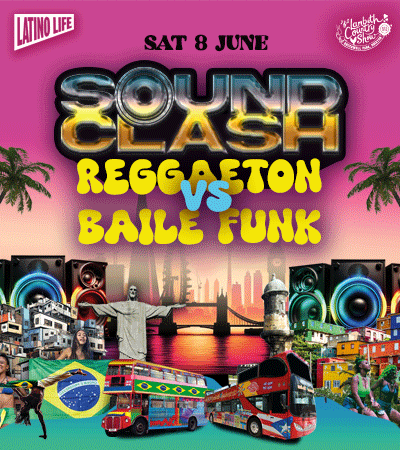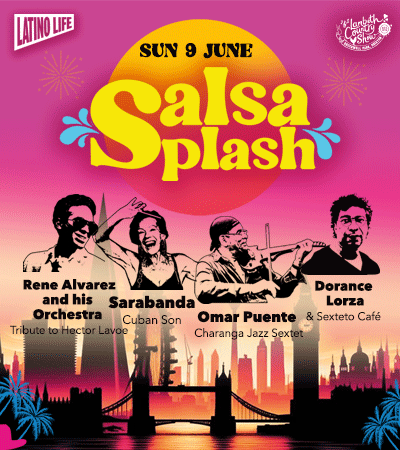Forgive my passion for Cuban Salsa. I apologise. I have no idea what is happening in the New York, L.A., and Colombian scenes, the latest moves and trends. What I can say is that Cuban Salsa, the live music, recorded music, the dance and the culture, is alive and kicking, in London, as in Havana.
We are like a global family, working hard, playing hard and growing our respective scenes together. Despite the recession, we are breathing new life into our Salsa dancing and appreciating the music more than ever. Latinolife's article Did Salsa dancers kill salsa music? raised some truly relevant issues; yet a quote in the last paragraph left me reeling: "London was THE capital of Salsa, but we've been left behind the rest of the world because we got complacent. English people ARE interested, but teachers need to educate themselves better and then incorporate it into how they teach, otherwise they can't feed that interest." So let me give a perspective please, at least from inside the Cuban Salsa scene.
The True 'Capital of Salsa'
There is no doubt that London has made its footprint in the history of Salsa; we can be proud of what we have achieved, and we are still on the world map. But let’s not get carried away. I have never been to Cali, so call me biased, but for me,’ THE capital of Salsa’ is, and has always been Havana, Cuba. In Havana, time itself is driven by the Clave and there is no other place on the planet that is so phenomenally rich in Salsa. Where else in the world do you have the choice of at least four of five world class, live music Salsa matinées and even more live Salsa shows and bands in the evening, seven days a week, 365 days a year, unless a General dies?
Where else are the level of Salsa composers, singers, musicians and dancers so high, where most artists have degrees in their art form if they are to be considered ’professional’? Where else have Salsa bands played together for over forty years and are funded by the state? Where else isRumba played on the streets, and Bembé’s happen in abundance in the homes of the people, celebrating the Afro-Cuban culture? Where else can you hear traditional Son, pouring out of every street corner with live musicians, and where else in the world are there so many Afro-Cuban dance masters and companies keeping the roots of Cuban Salsa authentic? Havana embodies the heart and history of Salsa. For a country that is castigated by an illegal embargo, and has long been suffering economic strife, with joy and pride, El Pueblo Cubano can confidently say ‘ Havana is still THE Capital of Salsa’!

We have never had it so good!
I opened the first Salsa club in the U.K. twenty years ago, Club Brazil, with Rene and Ze Indio, so I can look back with some awareness as to how things have changed and progressed. We regularly had a live band once a month, and although the beginner level Salseros did prefer the recorded tracks, they also appreciated the atmosphere and new punters that a live band generated.
In the last twelve years, new, professionally trained Cuban dancers (not only talented street dancers), and musicians have come to the U.K. and brought a new level of quality to our Salsa shores. They have influenced our knowledge of Cuban music, and have raised our awareness of all the different styles of Cuban dance that gave birth to the Salsa. Now, at the Cuban Congresses, we have much more than just straight Salsa on the menu.
Where do we need to focus?
Our Salsa promoters and dancers would love to have the Cuban bands that tour Europe at their Congresses and festivals, but it is often visa problems and expensive touring/European agent fees that make it too much of a financial risk. Look at what happened with Manolito’s and Bamboleo’s first concerts; the fault wasn’t with the Salsa promoters, and you can’t blame the British Embassy in Cuba for being stringent with visas, as Cuban artists do defect from time to time. However, when we do have International Salsa bands here, the sound quality and acoustics are often poor, the bands are often exhausted from hectic tour dates, the venues are too small, sometimes the event is advertised at the last minute, we don’t have enough funding or subsidy from the Arts council and, the relatively unexpressive British audience doesn’t exactly inspire the band to play their hearts out. This all affects the success of an event and the enjoyment of our live music.

Let’s celebrate not criticise!
Cuban dancers and musicians came here with degrees in dance and music, not marketing, so it has taken some time for all our true talent to become established and recognised. In the early days, some of the most successful dance teachers were the ones with great business acumen and advertising skills, so they were able to cash in on the new scene and make a fast buck. There were quality, dedicated teachers, that had a real passion for teaching and many more who, with no authentic training, jumped quickly on the band wagon, lowering the quality of teaching.
I agree, there are still teachers out there, doing it for the money or the glory without any education or integrity, however, I do believe that in general, the teaching of Cuban style Salsa is of a higher standard than it has ever been and that ’interest is being fed’. Although live music is not as supported as it should be, it’s unfair to blame the Salsa dancers and teachers. We have raised the quality of our teaching in the different respective styles, we are more educated about the music, and this should be celebrated not criticised. If we didn’t know the difference between a Cross body lead and a Dile que no, we certainly would be behind the rest of the world.

Inject our British reserve with a Cuban vacuna.
In England we have a culture more ‘observing’ of live music than ‘participating’. In Italy, at the opera, everyone sings along. Here in the U.K we sit and listen in without participation. I recently took my four year old son to see Havana Rakatan, the fabulous live music and dance show. When he started to dance and sing along, he was told to shut up and keep still by the couple sitting behind. When I organised a huge Brazilian Carnival party years at ago at The Rocket, I expected everyone to dance and party, as a multitude of acts performed. To my despair, everyone just went from stage to stage watching, observing and standing still, even though the live musicians were pumping out the Batucada.
In Cuba at a live gig, everyone has the biggest smile on their faces and after the first track, usually everyone in the place is standing up and dancing having the time of their lives. We do need to open up as a culture, inject our British reserve with a Cuban Vacuna, and find more confidence to express ourselves. One of the main crippling requests I hear when teaching all around the country is that Salseros want to feel more confident. Even if they dance beautifully, our culture is such that we do not acknowledge success. We are ‘Tacano’ with our compliments to each other and we are under confident, despite dancing to a high standard. At least at the live gigs, our Salsa dancers do get up and dance, and enliven the atmosphere, even if we are seated at the Barbican, Floridita and Ronnie Scott’s . It’s the Salsa teachers we need to thank who are giving the Salseros that confidence to break with British tradition and reserve.
Kerry Ribchester is director of www.key2cuba.com Part two of Kerry's opninion piece will be published next week. In the meantime, any comments are welcome below!



















